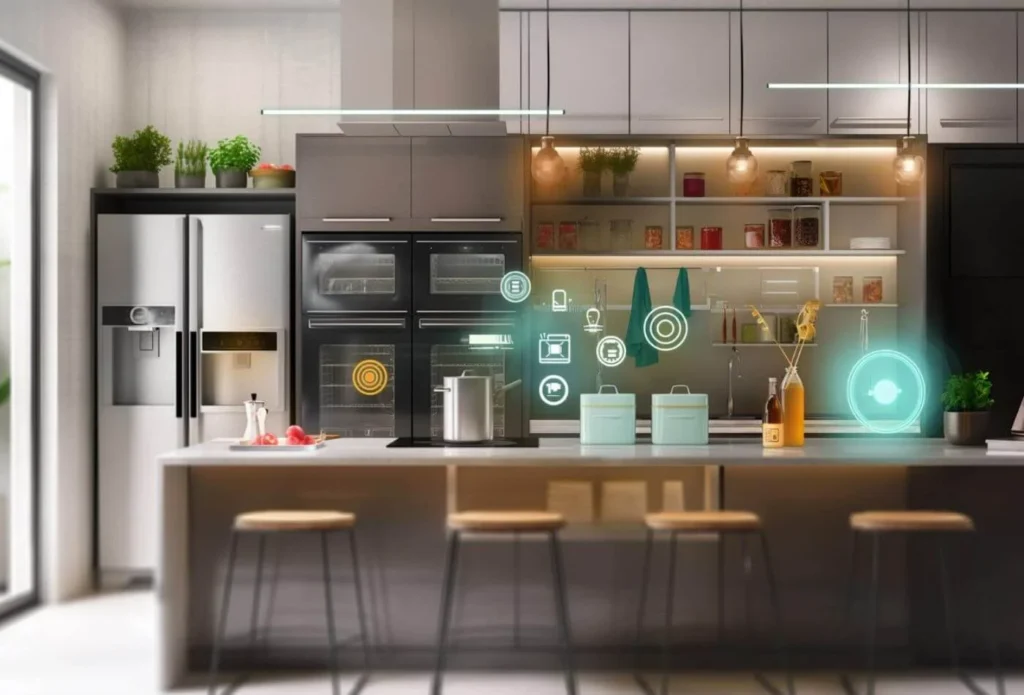In an industry as fast-paced and high-pressure as food service, innovation is not a luxury—it’s a necessity. As restaurateurs and commercial kitchen operators seek ways to boost efficiency, improve food quality, enhance safety, and meet rising customer expectations, one breakthrough stands out: smart kitchen technology. From IoT-connected appliances and AI-driven inventory systems to energy-efficient cooking solutions and automated food prep, these innovations are transforming commercial kitchens into intelligent, integrated environments.
The Rise of Smart Kitchen Technology
Smart kitchen technology refers to the integration of connected devices, data analytics, and automation in food preparation and kitchen management. It brings together a network of smart appliances, sensors, cloud-based platforms, and AI to create a kitchen ecosystem that can monitor, learn, and optimize operations in real-time.
Once viewed as a novelty, smart kitchen tech has now become a strategic asset for food service businesses. As labor shortages persist and competition intensifies, kitchens must do more with less—smart tech provides the tools to do exactly that.
Automating Repetitive Tasks to Maximize Efficiency
One of the most impactful benefits of smart kitchen technology is automation. Automated grills, fryers, and ovens can cook food with precision, following pre-set programs to ensure consistent quality. Robotic arms can flip burgers, prep ingredients, or even plate dishes.
These systems save time and reduce human error, allowing chefs and line cooks to focus on creative, value-added tasks. For example, a smart oven may adjust its temperature and humidity levels based on the dish being cooked, improving quality control without manual intervention.
Data-Driven Inventory and Supply Chain Management
Food waste is a major concern in the restaurant business, both from a cost and environmental standpoint. Smart kitchen systems now include inventory management tools powered by AI and machine learning. These tools can track stock levels, predict usage patterns, and even automate restocking by syncing with supplier platforms.
Real-time tracking helps reduce over-ordering and under-ordering, ensuring freshness and minimizing spoilage. Some systems also integrate with point-of-sale (POS) platforms that streamline restaurant operations, giving restaurants a comprehensive view of ingredient flow from delivery to plate.
Enhancing Food Safety and Regulatory Compliance
Maintaining food safety standards is critical in the food service industry. Smart kitchen technology enables precise monitoring of critical factors such as food storage temperature, sanitation schedules, and expiration dates.
Smart refrigerators and freezers can send alerts when temperatures drift out of range. Sensors can detect handwashing frequency and track compliance with hygiene protocols. This level of automation and traceability helps avoid violations and foodborne illnesses and streamlines the reporting process for health inspections.
Energy Efficiency and Sustainability
As sustainability becomes a higher priority, commercial kitchens are under pressure to reduce their environmental footprint. Smart kitchen technology helps achieve this by optimizing energy consumption.
Smart appliances are designed to operate at peak efficiency. For example, an intelligent dishwasher might adjust its water and power usage based on the load size and soil level. Smart lighting and HVAC systems respond dynamically to occupancy and kitchen conditions, further reducing utility costs.
In many cases, the use of smart technology directly contributes to LEED certification or other green building standards, making a compelling case for eco-conscious consumers and investors alike.
AI-Powered Predictive Maintenance
Equipment downtime can be disastrous during busy service hours. Traditional reactive maintenance approaches often result in lost revenue and compromised customer satisfaction. Enter predictive maintenance powered by AI.
Sensors embedded in kitchen appliances monitor usage patterns and wear indicators. These insights are analyzed to predict when a piece of equipment might fail, allowing proactive repairs and minimizing costly breakdowns. This extends the lifespan of expensive kitchen equipment and ensures consistent service quality.
Improving Employee Training and Onboarding
High turnover in the food service industry creates a constant need for training and onboarding. Smart kitchen technology simplifies this process by integrating guided interfaces, training videos, and real-time instructions directly into kitchen appliances.
For instance, a smart combi oven can display recipe instructions step-by-step on its touchscreen interface. Visual alerts can inform new staff when a cooking cycle is complete or when ingredients need to be added. This reduces training time and ensures consistency, even with inexperienced staff.
Elevating Customer Experience
Ultimately, the goal of any food service business is to delight customers. Smart kitchen technology enables faster service, better food quality, and more customization.
Digital ordering platforms integrated with smart kitchens can tailor orders based on dietary preferences or past purchases. Some restaurants are leveraging AI to predict peak service times and optimize kitchen workloads accordingly. This minimizes wait times and ensures every dish is prepared to perfection.
Moreover, customers today appreciate transparency. Smart tech can enable real-time tracking of order status, allergen alerts, or even live feeds from the kitchen—a level of openness that builds trust and loyalty.
Case Study: Quick-Service Restaurants (QSRs)
Quick-service restaurants have been early adopters of smart kitchen technology. Brands like McDonald’s, Domino’s, and Chick-fil-A have implemented digital kitchen management systems that integrate ordering, cooking, and delivery logistics.
McDonald’s, for example, has invested in AI-powered voice ordering, dynamic menu displays based on real-time data, and automated fry stations. These technologies improve order accuracy, reduce drive-thru times, and enhance overall efficiency.
The results? Higher customer satisfaction, improved profit margins, and scalability across thousands of locations.
Challenges and Considerations
While the benefits are clear, implementing smart kitchen technology is not without challenges. Upfront investment can be substantial, particularly for smaller operators. There’s also a learning curve—staff must adapt to new interfaces, and IT systems must be updated and maintained.
Cybersecurity is another concern. As kitchens become more connected, the risk of data breaches and system hacking increases. Operators must ensure robust cybersecurity protocols are in place to protect sensitive business data and customer information.
Finally, integration with existing legacy systems can pose compatibility issues. Choosing vendors that offer open APIs and scalable platforms can ease this transition.
The Future of Smart Kitchens
The future of smart kitchen technology is bright—and getting brighter. As AI becomes more sophisticated and IoT devices more affordable, we’lllikely see a new generation of autonomous kitchens that can self-optimize based on demand forecasts, seasonal menus, or ingredient availability.
Voice-activated commands, AR-guided food prep, and blockchain-based ingredient traceability are just a few developments on the horizon. The convergence of food science, technology, and data analytics will continue to redefine what’s possible in commercial food service.
In time, smart kitchens may even become standard, expected by both consumers and regulators, much like refrigeration and fire safety systems are today.
Final Thoughts
The transformation brought about by smart kitchen technology is more than a fleeting trend—it’s a revolution that’s changing how food is prepared, served, and enjoyed. From streamlining operations to improving safety and sustainability, smart tech empowers food service businesses to thrive in an increasingly competitive landscape.
Whether you manage a single restaurant or a chain of commercial kitchens, embracing smart kitchen technology is about more than keeping up—it’s about leading the way into the future of food service.




